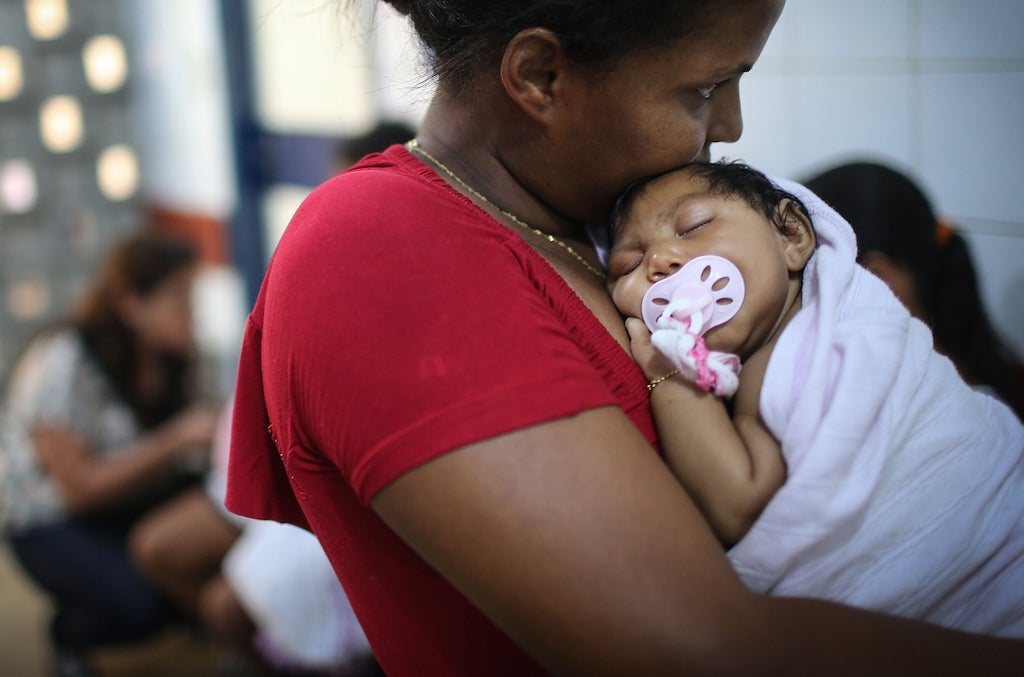Zika virus: experts say visible birth defects 'could be the tip of the iceberg'
The mosquito-borne virus may be responsible for birth defects and harmful neurological conditions in the babies of more than 20 per cent of infected pregnant women

Your support helps us to tell the story
From reproductive rights to climate change to Big Tech, The Independent is on the ground when the story is developing. Whether it's investigating the financials of Elon Musk's pro-Trump PAC or producing our latest documentary, 'The A Word', which shines a light on the American women fighting for reproductive rights, we know how important it is to parse out the facts from the messaging.
At such a critical moment in US history, we need reporters on the ground. Your donation allows us to keep sending journalists to speak to both sides of the story.
The Independent is trusted by Americans across the entire political spectrum. And unlike many other quality news outlets, we choose not to lock Americans out of our reporting and analysis with paywalls. We believe quality journalism should be available to everyone, paid for by those who can afford it.
Your support makes all the difference.The consequences of the Zika virus could be far worse than previously thought, with microcephaly in newborns merely the most immediately visible effect, scientists in the US and Brazil have said. The mosquito-borne virus, which began a major outbreak in Brazil last year, may be responsible for birth defects and other harmful neurological conditions in the babies of more than 20 per cent of infected pregnant women.
The medical community agrees a Zika infection during pregnancy can lead to microcephaly, which restricts brain development in babies, causing them to be born with unusually small heads. The condition is estimated to affect the children of 1 per cent of pregnant women with Zika. The virus has also been linked to Guillain-Barré syndrome, a rare and potentially fatal disorder that causes the immune system to attack the nerve system, leading to paralysis.
But a study in the New England Journal of Medicine found that 29 per cent of pre-natal scans of women infected with Zika “showed abnormalities in the womb,” a result its authors described as “worrisome”. On Sunday, at a meeting of the Pediatric Academic Societies in Baltimore, Dr Sonja Rasmussen from the US Centres for Disease Control and Prevention (CDC) said: “The microcephaly and other birth defects we have been seeing could be the tip of the iceberg.”
Meanwhile, doctors in Brazil have said around a fifth of pregnancies affected by Zika result in some form of brain damage to the child. The country has already seen at least 2,844 cases of the virus in pregnant women, but infection rates in some regions have been hindered by health education efforts. Experts have said the epidemic is likely to have abated in Rio de Janeiro by the time the Olympics are held in the city in August, in the depths of Brazil’s winter.
Much is still unknown about the long-term consequences of Zika infection. One Rio doctor told the BBC he had seen an increase in several neurological conditions in babies, including “ventriculomegaly, damage of the posterior fossa, craniocynostosis and cerebral calcification.” Dr Renato Sa, an obstetrician, said the conditions were difficult to spot in newborns and often became evident later in a child’s development, with “convulsions or other tell-tale signs”.
Newborns with microcephaly act similarly to other infants, but go on to develop learning, vision, hearing and/or physical disabilities. The condition has no cure. “We really don’t know what will happen with these kids long-term,” Dr Rasmussen told NBC News.
Scientists in several countries including the US, Brazil and France are working on almost two dozen different projects to develop a Zika vaccine. Meanwhile, areas of southern Europe and the US are being told to prepare for the possibility of outbreaks during the warm summer months, when Zika-transmitting mosquitoes could arrive in US states such as Florida, and Mediterranean countries including Spain, Italy and Greece.
Last week a 70-year-old man in Puerto Rico died from complications due to Zika, the first US death caused by the virus. Almost 700 people in the island territory have been found to have traces of the infection. So far there have been no cases of infection from local mosquito bites on the mainland US, but more than 400 people have been infected abroad and diagnosed upon their return to the country. Congress is currently considering a $2bn (£1.4bn) emergency funding package to tackle the disease.
Subscribe to Independent Premium to bookmark this article
Want to bookmark your favourite articles and stories to read or reference later? Start your Independent Premium subscription today.
Join our commenting forum
Join thought-provoking conversations, follow other Independent readers and see their replies
Comments